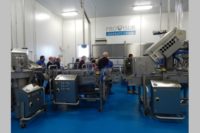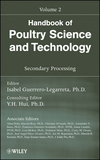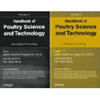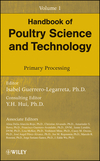Agricultural Ingenuity or Mad Science?
Barbara Young
Mary Wollstonecraft Shelly’s fictional account depicting the creation of the “Frankenstein” monster addressed the mysterious fears of human nature, while also awakening a seemingly natural thrill of horror.
For is it not true that, although real and fictional scenes of violent acts may repel certain humans, they are also attracted to them, as if by a magnet?
Shelly’s novel lays the ground for moral and political questions concerning scientific discoveries that have landed on the modern landscape. For example, which discoveries can be defended as reasonable or the works of mad scientists?
“Frankenstein, or, The Modern Prometheus” was published in 1818. Now, 187 years later, certain scientific ventures involving animal cloning and growing meat in a lab dish are generating a Frankenstein-kind-of-controversy.
Consider a NASA-funded team experiment involving live muscle tissue from freshly killed goldfish kept alive in a standard cell-culture fluid for a week. Then there is the University of Georgia poultry science professor, who discovered how to convert chicken meat from dark to white. The most extreme of the lot occurred across the waters in South Korea, where scientists, engaged in stem cell work, produced a cloned dog using skin cells from a male Afghan hound and called it Snuppy.
The 1997 birth of Dolly the sheep, the first mammal cloned from an adult cell, marked the onset of agricultural cloning. Since then, cloning has extended into cats, goats, mules, cows, pigs, mice, rabbits, and guar, a large wild ox of Southeast Asia. And, although researchers have failed to clone a monkey or other similar primate — the closest model to humans — it may just be a matter of time. Researchers indicate that embryonic stem cells, the source of all tissue, can be manipulated into growing into nerve cells, heart, or brain matter suitable for renewing ailing organs.
For now, agricultural cloning is the issue at hand. Bona fide research and discoveries must be backed by federal sanction. No problem. The latest word is that a rule is in the wind from the FDA, which would clear the path into commerce for milk from cloned animals and meat from their offspring.
Am I eagerly awaiting the results of this modern biology? Frankly, I am not certain. However, I don’t have a problem with surimi, imitation crabmeat made from minced fish.
Moreover, I agree with this passage from one of my favorite writers: “There must be universal agreement that life was meant to be lived in search of the miraculous in service to human efforts to contrive wonder and delight among the unforgiving surfaces of daily living.”
There are so many unresolved issues, however, not the least of which being the premature death of Dolly the sheep in 2003 from cancer and arthritis. Ethicists might see this as clear evidence of what happens in a challenge between science and nature. They may see a reflection of the agony and ecstasy characterized in Shelly’s novel, which is the danger of playing God with science.



